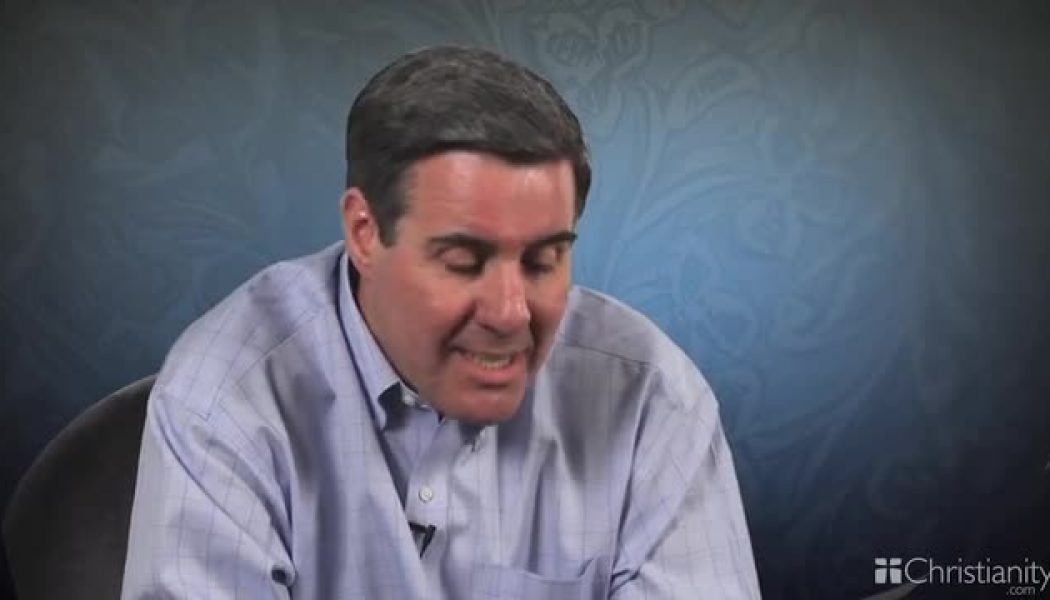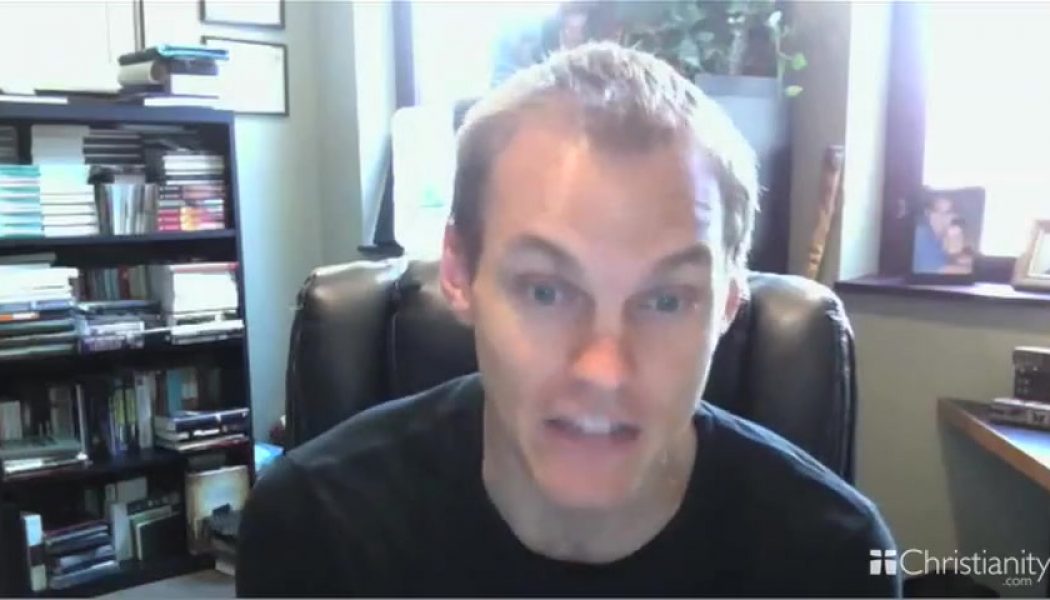Blog
living beauty
Barely alive living beautythat day you ranand the sun huggedyour shoulders andlaughed and the sweetgrass tickled yourtoes and the doglicked your face andyou lay down, downin green blue goldbursting, bursting loose all binds. No, no you arenot far away,away from here, not tied down, downto any thing. This post appeared originally at jenniferjcamp.com
Does Mark 9:42-50 teach about hell when it refers to worms and fire?
My book, What is Hell? is now available on Amazon. I am doing a series of podcast studies that focus on some of the content from the book. The studies look at the eight key terms that are often equated with hell, and about a dozen key passages that are thought to teach about hell. If you want to learn the truth about hell and what the Bible actually teaches about hell, make sure you get a copy of my book, What is Hell? The following study looks at Mark 9:42-50 to see whether are not this text teaches that hell is an everlasting place of suffering and torment for the unbelieving dead. Does Mark 9:42-50 teach about hell? Their worm does not die, and the fire is not quenched… (Mark 9:48). Mark 9:42-50 is very similar to Matthew 18:6-9, and can be understood in a nearly identical way. So it mi...
What Is a Tithe?
For more information about Colin Smith, visit: www.unlockingthebible.com and www.theorchardefc.org For more answers to questions about Christianity, visit www.christianity.com Originally published December 18, 2012.
Sin Is Insanity
“I was brutish and ignorant; I was like a beast toward you.” (Psalm 73:22) The driven, watchful envy of a horizontal pleasure-oriented heart will drive you crazy. It will not only rob you of your satisfaction and joy, it will take your humanity from you. It will make you more of a brute than a friend. It will eat your heart and consume your soul. You see, if you somehow fall into thinking that life is found in the pleasures and comforts of the physical; created people; things and experiences of this here and now world; then that is what you will live for. You won’t live for God. You won’t live for the good of others. You won’t be motivated by what is loving, good, true and wise. No, you will live for you, and whether you know it or not, everyday will be a hot ...
The Cure to Christian Boredom
David Platt’s latest book, “Follow Me,” picks up where his best-selling book “Radical” left off. Christians are called both to follow Christ and to be disciple-makers. Trusting only in the radical righteousness of Christ, we lay down our lives to do God’s will in whatever location He calls us to serve. Originally published May 29, 2013.
Christ Our Sanctuary
“And he will become a sanctuary and a stone of offense and a rock of stumbling to both houses of Israel, a trap and a snare to the inhabitants of Jerusalem. And many shall stumble on it. They shall fall and be broken; they shall be snared and taken.” (Isa. 8:14-15 ESV) It’s easy to stumble over Jesus. He doesn’t fit the general profile of the nice-guy religious leader. He does not ask you to work for him—to clean up your act, be measurably good, or bring any sense of your own righteousness to him. He simply asks that you trust him and the work he has done on our behalf for salvation, by grace through faith (Eph. 2:8). The simplicity of Jesus’ gospel work is troubling to people because he works for us, and we cannot add to what he is doing. Yet we should feel overjoyed and relieved to know ...
3 Simple Steps for Studying the Bible
One of the noblest pursuits a child of God can embark upon is to get to know and understand God better. The best way we can accomplish this is to look carefully at the book He has written, the Bible, which communicates who He is and His plan for mankind. There are a number of ways we can study the Bible, but one of the most effective and simple approaches to reading and understanding God’s Word involves three simple steps: Step 1: Observation—What does the passage say? Step 2: Interpretation—What does the passage mean? Step 3: Application—What am I going to do about what the passage says and means? How to Study the Bible in 3 Steps Step 1: Observation Observation is the first and most important step in how to study the Bible. As you read the Bible text, you need to look carefully at what i...
Diversity and Friendship
Diversity: the condition of having or being composed of differing elements; variety. (Merriam-Webster Dictionary) The word diversity is not in the Bible. And though not in the Bible, God’s word is filled with diverse descriptions of people, God’s created and image-bearing people. God, himself, is diverse as the triune God—three in one person. Diversity is found throughout the pages of Genesis as tribes and tongues and nations are established (Genesis 1-11). We see diversity in the way the Lord calls people to himself—all nations. Paul ties it all together reminding the Galatians of God’s promise to Abraham for all the nations. “And the Scripture, foreseeing that God would justifythe Gentiles by faith, preached the gospel beforehand to Abraham, saying, ‘In you shall all the nations be...
Weakness Is the Way
In The House at Pooh Corner, the second of A. A. Milne’s enchanting collections of Winnie-the-Pooh’s adventures, we meet fussy mother Kanga, who deems it vital that, whatever else he does, her happy-go-lucky, into-everything offspring Roo should regularly take his strengthening medicine. Why? To grow up strong, of course. And what does that mean? Strength is physical, moral, and relational. Strong people can lift heavy objects, stand unflinchingly for what is right against what is wrong, lead and dominate groups, and in any situation, as we say, make a difference. Strong people carry personal weight, which, when provoked, they can effectively throw around. Strong people win admiration for their abilities and respect for their achievements. Kanga wants Roo to be strong, as other parents wan...
6 Steps to Making Your Testimony Boring
Don’t you hate people who only want to talk about themselves? You know the type. They’re fascinated by themselves: their talents, their achievements, and precisely how incredible they are. Change the subject as many times as you want, and somehow it always come back to them. Boring isn’t it? We hate having to listen to people talk about themselves all the time. It gets in the way of talking about more important things. Like us. There’s a shadow of Narcissus in each of us. You may know the story of Narcissus. He’s the guy who was so handsome that when he glimpsed his own reflection in a smooth pond, he couldn’t take his eyes off himself. So he remained by the still water, gazing at himself until he died. Completely self-absorbed. As much as we hate to admit it, we’re all a little like...
Ruth: Sex, Race, and God’s Sovereignty
Editor’s Note: The following is an excerpt from A Sweet & Bitter Providence: Sex, Race, and the Sovereignty of God by John Piper (Crossway). Ruth is a very old book. The events took place over three thousand years ago. Could it be relevant and helpful for your life? I think so. The sovereignty of God, the sexual nature of man, and the gospel never change. And since God is still sovereign, and you are male or female, and Christ is alive and powerful, the book has a message for you. I don’t know you or your circumstances well enough to say for sure that you should read this book. You must decide. To be sure, there are other things to do that are just as important—like telling your neighbor about Jesus. So let me simply tell you why I think you might be helped if you join me i...
How Can I Have Assurance of Salvation?
You can have assurance of salvation when you believe that salvation is not your doing, but God’s act of redemption in Jesus Christ, conceived before the foundation of the world, a sacred agreement between the Persons of the Triune God, and carried out by God through the mysteries of His providence in real time. Once Saved Always Saved? The lack of assurance in salvation is, regrettably, a common pathology of the Christian soul. Particularly when our past sins conspire with our present doubts, our spirits are vulnerable to diabolical oppression. In short, though saved and kept forever by God, we buy the lie that we are not. A lack of assurance is not necessarily sinful unless you know the truth and resist it or reject it. Usually, the lack of assurance is a misunderstanding of God’s salvati...























